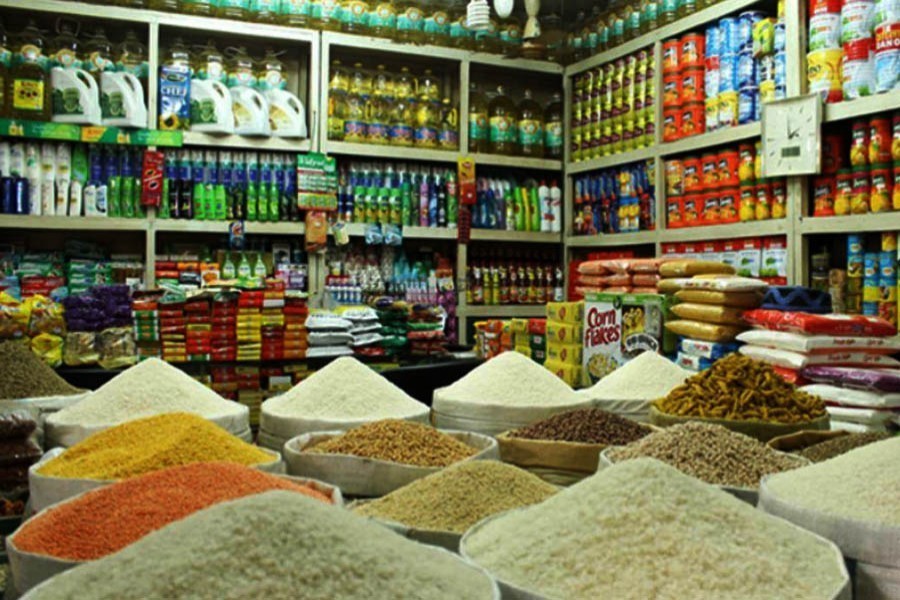
Published :
Updated :

The holy month of Ramadan is approaching and the prices of necessaries are also rising persistently. It turns out to be a perennial phenomenon in Bangladesh, in particular. No doubt that demand for various food items usually increases before Ramadan, which is one of the reasons behind the hike in prices of these items. As the demand goes up, generally, during the first week of Ramadan, the price indices also keep climbing onto higher levels. Later, prices start to come down modestly and the kitchen market becomes somewhat stable. Once again the wayward market turns volatile in the third week of the month ahead of Eid-ul-Fitr and the prices of items related to the greatest religious festival of the Muslims buck up few days before Eid.
Rise in demand for a few food items before Ramadan is the main reason behind the overall hike in the prices of essentials. Basic economic theory tells that if demand for any item increases significantly against the regular supply in the market, the price of the same also rises. As suppliers or sellers try to take advantage of the increased demand by raising the price, they make some additional profit while the consumers have to pay higher price. Those who cannot afford, due to their limited or low income, are left out. Then again, when demand decreases or supply improves, price also comes down to previous level to the relief of most consumers.
Nevertheless, the supply-demand mismatch can't explain the surge in prices of various items as speculation also plays a role in the erratic price situation. Speculative behaviour of both the buyers and sellers are deemed responsible for turning the kitchen market volatile to some extent. As consumers think or anticipate that prices may increase or continue to increase in the near future, during Ramadan in the present case, they try to purchase some additional quantity of goods to avoid extra expenditure. By doing so, they actually create a pressure on the supply situation. On the other hand, guessing that consumers would go for more than normal purchase, retailers and wholesalers also go for hoarding to create an artificial crisis. Their speculative behaviour leads to some supply crunch and thus an increase in prices.
In Bangladesh, there is also a strong perception that market syndicate or nexus of some retailers and wholesalers is another major factor behind such abnormal or sudden surge in prices of essentials, especially during or ahead of Ramadan. It is, however, difficult to substantiate the view for obvious reasons. Generally, market syndicate means that a group of sellers control most of the supplies of some goods and also fix the prices of these goods cohesively. There are, however, thousands of retailers and wholesalers in the market. It seems difficult for someone to dictate the price of particular goods and compel others to sell the product at the fixed price.
True, there are only a few big importers of essential commodities who actually control the large portion of total imports. So, these giant trading houses can influence and manipulate the supply and prices of commodities significantly. On several occasions, it has also been proved that they are responsible for some anti-competitive behaviour on the market. Nevertheless, it will be unfair to blame only them for abnormal price hike. Due to economies of scale, these houses can manoeuvre market. The theory of economies of scale means cost reductions by increasing production or supply by a firm which also reflects the firm's efficiency. As a big trading house can import and store a bulk amount of goods at a time, it is possible for the firm to reduce per-head cost. Now, the firm can also supply the product to different retailers keeping its desired profit margin.
Strong presence of rent-seekers in the supply chain is another factor behind price fixing. It's a common knowledge that from the mill-gate to retail market, a number of unauthorised toll- takers are active. Backed by a section of political leaders and police, they collect the illegal toll which adds to the cost of supply in different stages.
Against the backdrop, the current spiral in prices of essentials seems to be a complex issue. Consumers have, however, little interest in all these, but simply want to get their necessary items at a reasonable price. As they are now compelled to pay higher prices for the essentials, it has been eroding their real income. As long as the price hike will continue or the prices will be stable at a level that is abnormally high, the erosion of real income will also follow to compound commoners' woes.
Acknowledging the grave situation on the commodity market, the government has extended its open-market sale (OMS) for low-income people through the Trading Corporation of Bangladesh (TCB). Some 10 million low-income households will get ration cards and they can purchase a selected quantity of food items by using the card. The commerce minister inaugurated the programme in Dhaka last week on a limited scale. Soon it will be operational across the country.
Though this is a welcome move, the subsidised OMS programme also reflects that the regular market mechanism is not functioning properly. The government has also not adequate control or supervision over the market of daily necessities. Meetings with traders to keep prices stable, warning of tough action against so-called syndicate members, and assuring consumers about the adequate supplies of commodities have yet to bring desired outcome.


 For all latest news, follow The Financial Express Google News channel.
For all latest news, follow The Financial Express Google News channel.